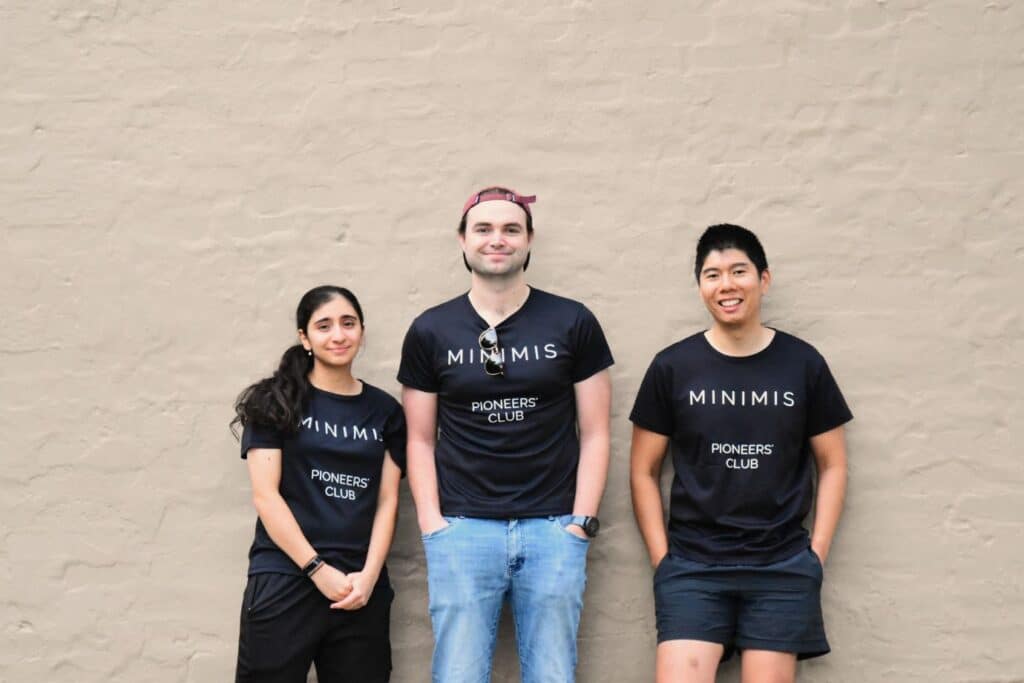Breaking into just one male-dominated industry is a daunting task for a young woman in Australia. But 18-year-old Rose Naji shows no signs of fear.
The second-year uni student from Sydney has been in the startup sector in Australia since she was just 13 years old, boosting the representation and voices of women in the male-heavy entrepreneurial world for the last five years.
Now, studying her Bachelors degree in aerospace engineering at the University of NSW (UNSW), she aspires to work in a space startup and eventually founder her own startup in aerospace engineering.
For someone working in two fields where women are extremely underrepresented, Naji emanates great hope for her future.
“I’m really interested in the business field and entrepreneurship, startups, that kind of stuff,” she told Women’s Agenda recently.
“It empowers individuals to create something that can change the world – or just impact someone’s life for the better. And that’s what I really care about.”
Her startup journey
Once she discovered her passion, Naji didn’t waste any time cracking on as an entrepreneur. At 13, Naji founded her own business which she ran for about five years. The headstart as a teenager set her up for an extraordinary entrance into the world of entrepreneurship.
During Year 11, when she was 15, Naji joined Generation Entrepreneur, an organisation inspiring the next generation of startup founders, as the people officer. She was the youngest member of the team and helped run events for the organisation.
After volunteering in several other startups in Australia, Naji began working at Minimis Technology last year as the marketing and product manager.
Earlier this month, the tech startup launched the beta release of their app, Minimis Launcher, on Google Play. The app targets the younger generation’s addictions to their phones and particularly to social media.

“Everyone has so much potential, but we’re not utilising all of it,” Naji says.
“I don’t mean that in a productivity or working harder kind of way – we can spend our time more meaningfully doing things that provide us value and things that we actually enjoy, rather than wasting it scrolling or spending time on our screens unnecessarily.
“Right now, it seems more like our phones are using us more than we are using them. It takes away our attention, our motivation, and our dopamine levels are essentially hijacked.”
Minimis Launcher uses dull colours, a text-based interface and a “dopamine journal”, deincentivising users to go on social media apps which are designed to give us dopamine hits and keep us on the screen for longer.
Each time a user wants to open an addictive app, they must tell Minimis Launcher in the dopamine journal why they are opening the app.
“It forces you to reflect on whether it was really necessary, and what is causing you not to be able to break the habits of scrolling,” Naji says.
Women-owned startups are growing, but still underrepresented in Australian entrepreneurship. In a report from last year, more than 35 per cent of businesses in Australia were owned by women in 2022, a four per cent increase from two decades ago.
While Naji knows of the unequal representation, women supporting women in the industry gives her hope for a better future in the space.
“In the startup space, I’m happy to see there’s more women and there’s women communities,” Naji says.
Aerospace engineering and Naji’s future
The future for Naji is bright – at 18 years old, she already has a wealth of experience in the startup sector. But there’s one business area she is looking to break into – aerospace engineering.
“I’m so passionate about space,” Naji said. “I think it’s humanity’s gateway to advancing civilisations.”
Naji is in her second year of her Bachelors degree in aerospace engineering at UNSW. While that keeps her busy, this year she was also selected to work with a team to build the world’s first nuclear fusion reactor on a university campus. Naji is thrilled with her first opportunity to gain hands-on experience in an industry she is deeply passionate about.
“There’s an argument about fixing what’s on earth, and I agree – our earth is very important and precious, and I love it dearly,” Naji says.
“But I think if we expand into space, it advances us so much and it will also help protect Earth, in my opinion.
“I also believe that the universe helps us answer a lot of existential questions, it helps us understand ourselves.”
Like the startup sector, the number of women in aerospace engineering is on its way up, with a long way to go: in 2020, just 12.6 per cent of aerospace engineers in the US were women.
Coming from her experience in the start-up sector, it’s nothing new for Naji. In Year 12, she was one of just two girls in her physics class of about 20. Naji was also the only girl in her engineering class, which she dropped out of after two weeks.
“It’s kind of normal for me to be in an environment where there’s more men,” she says.
But she hasn’t broken a stride on her way to achieving her goals: one day, Naji aims to found her own startup, merging her passion for entrepreneurship and aerospace engineering.
Right now, though, she’s happy where she’s at.
“I do want to found a startup in the long term, but right now I definitely need more skills and to learn from other people around me,” Naji says.


